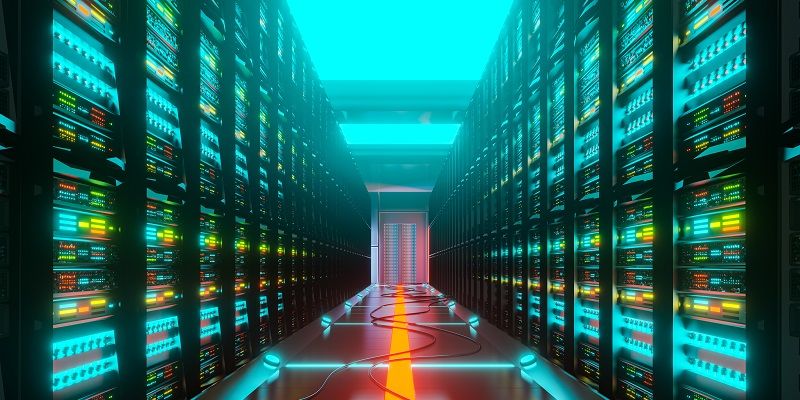In a recent job posting, global technology giant Microsoft revealed its plans to integrate small nuclear reactors into its power systems for data centers. This move signals Microsoft’s effort to make nuclear energy an important part of its energy strategy, a decision possibly driven by growing concerns for the environment. While nuclear power has long faced criticism for safety and proliferation issues, the urgency of the worsening climate situation makes it a comparatively attractive alternative to fossil fuels.
Microsoft’s Effort to Make Nuclear Energy Important
The job posting clearly indicates Microsoft’s intention to prioritize nuclear energy. By hiring a nuclear technology program manager, the company aims to maintain a clear and adaptable roadmap for integrating this technology into its power systems.
Focus on integrating nuclear energy into its energy strategy
Microsoft’s interest in integrating small nuclear reactors into its power systems suggests that it intends to hedge against the environmental impact of traditional energy sources. This strategic move aligns with the company’s commitment to sustainability and reducing its carbon footprint.
Microsoft’s goals for its nuclear energy program
While the specific goals of Microsoft’s nuclear energy program have not been publicly disclosed, the integration of small reactors into data center power systems holds immense potential. By exploring nuclear options, Microsoft aims to develop a reliable, secure, and carbon-free power source for its data centers.
Maintaining a Roadmap for Integration
The nuclear technology program manager will play a crucial role in ensuring the smooth integration of nuclear technology into Microsoft’s power systems. They will be responsible for maintaining a clear and adaptable roadmap, which includes navigating regulatory affairs and overseeing the practical implementation of nuclear technologies. Microsoft’s job posting emphasizes the need for candidates with extensive experience in the energy industry and a deep understanding of nuclear technologies and regulatory affairs. This requirement highlights Microsoft’s commitment to ensuring the safe and compliant integration of nuclear power into its operations.
Importance of finding someone familiar with Small Modular Reactors (SMRs)
Microsoft specifically seeks candidates familiar with Small Modular Reactors (SMRs). These compact reactors offer scalability, flexibility, and enhanced safety features, making them an attractive option for meeting the energy needs of data centers. SMRs are an emerging technology in the nuclear industry. These compact reactors offer power capacities ranging from 1 MW to 20 MW, making them suitable for various applications. They are designed to be more efficient, cost-effective, and easier to deploy compared to traditional larger-scale nuclear reactors.
Certification of an SMR by the Nuclear Regulatory Commission
Microsoft’s interest in SMRs aligns with recent advancements in this field. One particular SMR design recently received certification from the Nuclear Regulatory Commission in the United States. Generating about 50MW of power from a light-water design, this certified SMR marks a significant step forward in the commercial viability of SMRs. Microsoft’s job posting also mentions microreactors, highlighting their potential usage in mobile applications. With power production capacities ranging from 1MW to 20MW, microreactors offer versatility and can be a suitable choice for meeting localized energy demands.
Signing a deal with Constellation Energy to power a data center
Microsoft has already taken steps towards embracing nuclear power. In June, the company signed a deal with Constellation Energy, a nuclear plant operator based in Virginia, to power one of its data centers. This initiative aims to make the data center’s power source carbon-free, aligning with Microsoft’s commitment to sustainable operations.
Microsoft’s goal of a carbon-free power source for the data center
By partnering with Constellation Energy and seeking carbon-free power options, Microsoft demonstrates its dedication to reducing the environmental impact of its data centers. Nuclear power offers a reliable and low-carbon alternative to conventional energy sources, providing a significant step toward achieving sustainability goals.
Significance of Microsoft’s Exploration of Nuclear Energy
As the climate crisis continues to escalate, finding sustainable energy solutions becomes increasingly urgent. Nuclear power, despite historical concerns, offers advantages over fossil fuels. Its low carbon emissions and potential for zero-emission energy production make it an attractive option for companies striving to reduce environmental harm.
Potential for a carbon-free power source for data centers
Microsoft’s exploration of nuclear energy for its data centers not only contributes to its own sustainability goals but also sets an important precedent for other tech companies. With the power demands of data centers growing exponentially, the integration of nuclear power systems can help reduce carbon emissions at scale, shaping a more sustainable future for the industry.
Microsoft’s job posting for a nuclear technology program manager provides insight into the company’s strategic move towards integrating small nuclear reactors into its data center power systems. This decision aligns with Microsoft’s commitment to sustainability and reducing its carbon footprint. By exploring nuclear energy options, the company aims to develop a reliable, secure, and carbon-free power source for its data centers. While concerns regarding nuclear power persist, the potential for a low-carbon alternative to fossil fuels cannot be ignored in the face of worsening climate conditions. Microsoft’s pursuit of nuclear energy holds significant implications for environmental concerns and energy sustainability, both within the tech industry and beyond.

